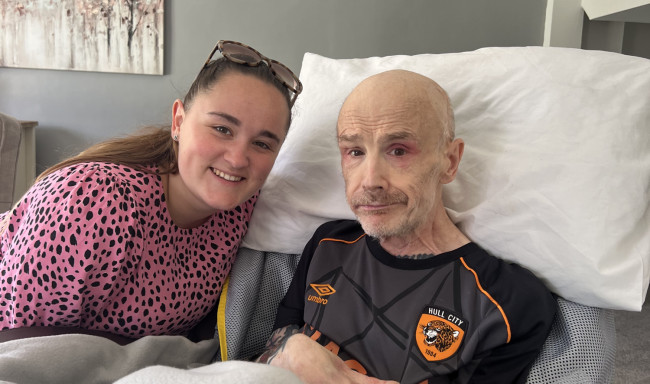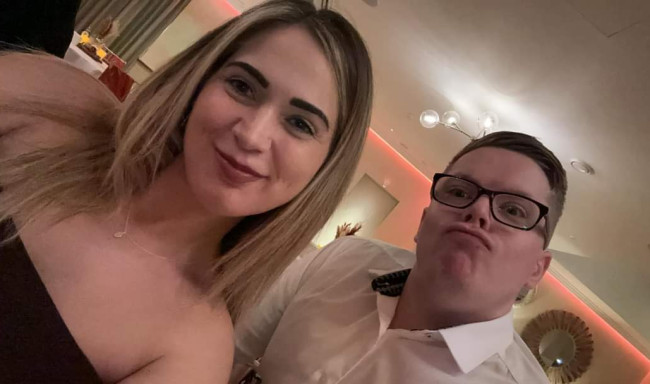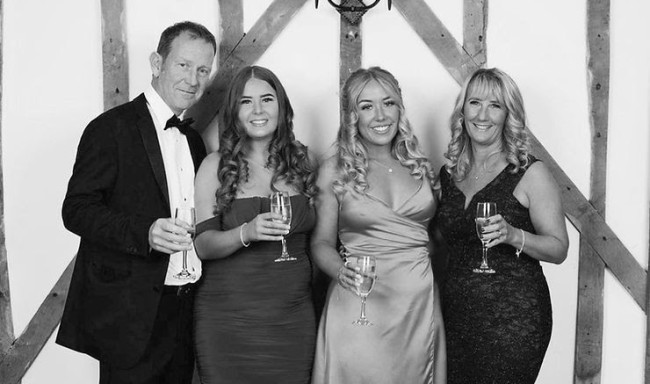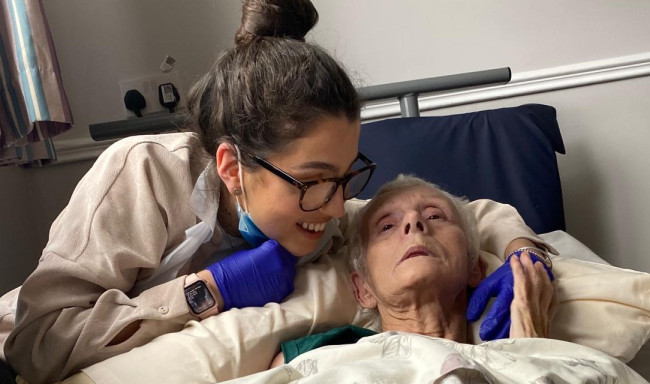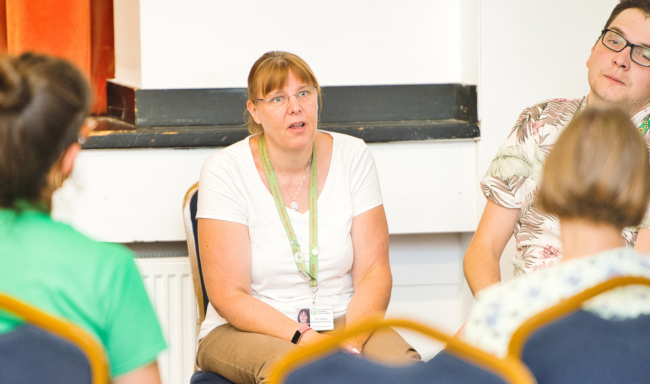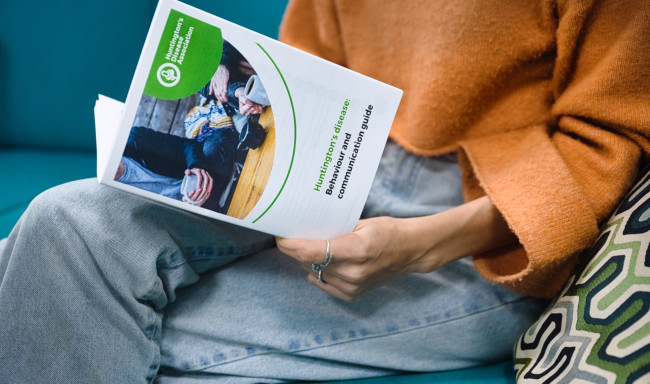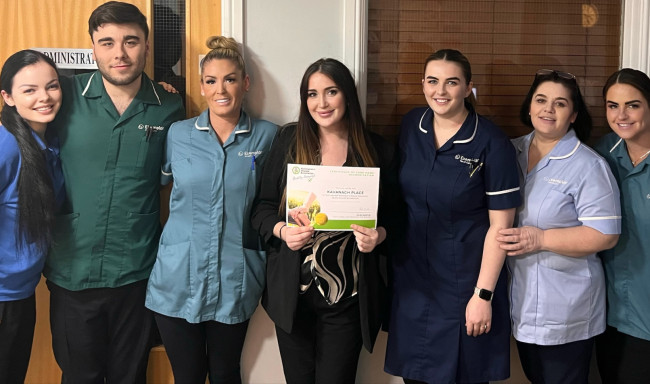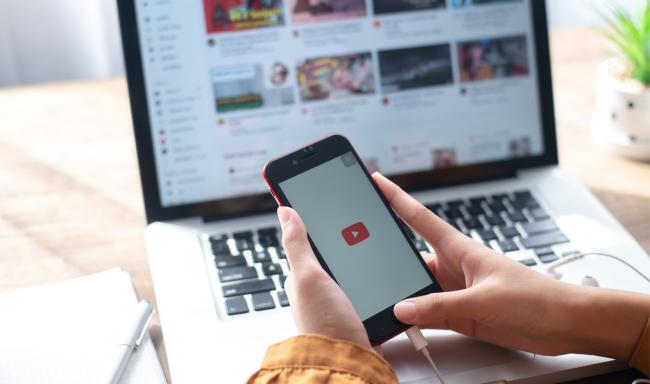We spoke to Charlotte about the difficulties when there are not adequate mental health services for people with Huntington's disease.
"I'm Charlotte I'm 33 born in Sunderland with my mam, dad and brother. I was brought up in what I would say was a relatively normal home. My brother left and went into the navy and my mam’s MS progressed around 20 years ago. My dad just never stopped, all day he was on the go and you would always find him in his office or the garage.
I have to admit, I was rebellious growing up, always in trouble, didn't do well at school, couldn't concentrate and that only got worse. At 16 my dad thought it was in my best interests to move away. I went to the Lake District and it did some good but I couldn't hold a job down, I couldn't settle, so I decided to go back home - but it wasn't for me.
I moved around a lot and had a lot of jobs but I found cleaning and working in a pub as something that I enjoyed - it was different every day and I loved it. The only problem was that I had a temper and I couldn’t deal with rules. I didn't have much family and I felt like I was against everyone. I had mam’s dad, auntie and uncle in the same area but I hardly bothered because nobody understood what was going on and neither did I.
In 2013 I had a son. My dad got diagnosed with prostate cancer and that year we also found out he had Huntington’s disease and that I was also at risk and my son was too. He didn't tell me sooner because he said there was no reason for me to know and he was yet to have symptoms. I was scared, I didn't know what to do. Still to this day, my dad is coming up 70 and he doesn't want to talk about it. He is proud of what I'm doing but he doesn't understand or want to understand or even believe it's real."
Doing what I'm doing [advocating for the Huntington’s community] is helping me and I'm proud of myself which is a big achievement. My goal is to speak about it and make more people aware of it. It's incurable, it's rare and the word Huntington’s disease needs to be put out there.
When did you first know that Huntington’s disease affected your family?
"I first found out about Huntington’s disease when I used to visit my dad's side of the family. My uncle and grandfather were symptomatic but my father would never speak about it or he would change the subject when it was spoken about. I was oblivious that he had the gene."
How did Huntington’s affect your mental health before getting tested for the gene?
"My mental health and depression have always been an issue but until my son was born I didn't know my father carried the gene. From my teenage years I became rebellious and depressed, my cognition wasn't good and I was classed as a naughty child which stayed with me until my mid 20s. My mental health and my mind are still in my teenage years. I don't seem to want to, or can't grow up - it won't let me. Every day is different, it’s the unknown and the depression can beat you if you let it."
After finding out you had Huntington's, how did this change?
"At first it didn't really change me but it did make me worry that if I had the slightest change in behaviour or movement I would panic. I worried on a daily basis about if I carried the gene and could pass it to my son - that will always be a struggle with me until he's old enough to know or even wants to get tested. A few years after finding out I was at risk, myself and my partner started to notice things changing. My cognition was getting worse, I was losing grip of things and having involuntary movements. But I know I have to get used to it, I make notes, take medication, and keep on the go."
Do you feel as though there is a lack of mental health services for those affected by Huntington's disease?
"There aren't any services in the area I live in and there aren't many professionals that can help or guide you in the right direction. They have either just checked up on the disease due to my medical history or I usually have to do the explaining on what Huntington’s disease is and how it affects me. I remember going through a bad time and it was really affecting my mental health and I was having flashbacks. I went to my local GP and before I sat down he said "I see you have Huntington’s chorea I don't know anything about it". I explained what was going on, that I was having flashbacks of my grandad in end-of-life care, and my uncle with his bad involuntary movements and that I couldn't get these visions out of my head. On that visit he told me I had to see my genetic consultant in Newcastle - but I needed the help on that day. I walked out feeling let down with even more on my mind than I did before I went there. This unfortunately happened on three more occasions after that."
Is there anything that has helped you overcome your own mental health struggles?
"I had a bad accident and it made me understand and realise what a difficult disease this can be and how it can affect people in different ways. It made me think that if you try to push yourself and others then there might be hope. Talking about it and spreading awareness helps me and hopefully helps others at the same time."
Have utilised any of our charity’s services, if so, how this has helped?
"I had a lady from neuropsychiatry involved which helped a lot. I use various social media accounts and follow a variety of people some of whom may have Huntington’s disease some who might want to know more. I have also spoken to the Specialist Huntington’s Disease Adviser, Theresa Westhead who has been remarkable in answering any questions or problems I had. The fundraising team have also given me lots of support - they were fantastic."
What would you like to achieve?
"I would like Huntington’s disease spoken about more, for doctors to learn about the disease, for more access to help when people are struggling. I would like to be able to help others, guide others and be there for others to speak to."
Thank you to Charlotte for sharing her story with us.
If you are affected by Huntington’s disease and are in need of support or advice, please contact us on 0151 331 5444 or email info@hda.org.uk. Our dedicated phone line is open 9 am – 5 pm, Monday – Friday with Specialist Advisers and our Helpline Adviser who can offer you support.
If you have a story to share, please get in touch with us via email.

